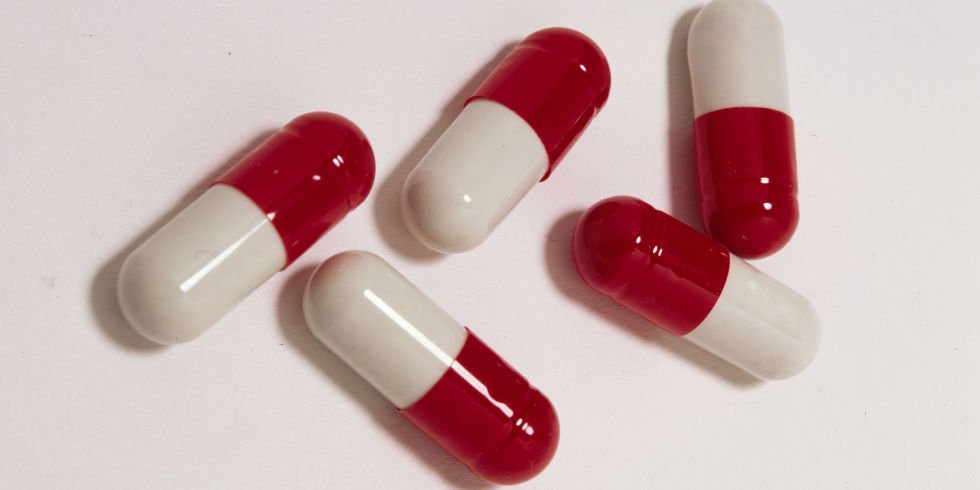From chemotherapy and targeted cancer treatments to antisickness medicines and painkillers, we look at some of the medicines you might be prescribed while you are having treatment for cancer

In this section you’ll find information about the different types of medicines used to treat cancer, as well as the supportive treatments that might be used alongside these, for example to manage side effects or help with pain. Don’t forget this is only a guide – talk to your doctor or pharmacist if you’ve any questions about treatment.
Chemotherapy medicines
Chemotherapy medicines treat cancer by killing cells in the body that are dividing rapidly. They are often given by injection through a tube into one of your veins, but can be given in many different ways depending on the individual drug, the type of cancer being treated and what type of regimen you are having.
- Alimta (pemetrexed)
- Alkeran (melphalan)
- Amsidine (amsacrine)
- Atriance (nelarabine)
- BiCNU (carmustine)
- Bleo-kyowa (bleomycin)
- Busilvex (busulfan)
- Caelyx (doxorubicin)
- Campto (irinotecan)
- Carboplatin
- Cisplatin
- Cosmegen lyovac (dactinomycin)
- Cyclophosphamide
- Cytarabine
- Dacarbazine
- Daunorubicin
- DaunoXome (daunorubicin)
- Efudix (fluorouracil)
- Eldisine (vindesine)
- Eposin (etoposide)
- Erwinase (crisantaspase)
- Estracyt (estramustine)
- Etopophos (etoposide)
- Evoltra (clofarabine)
- Fludara (fludarabine)
- Fluorouracil
Biological anti-cancer medicines
These are targeted treatments that affect specific processes involved in the growth of cancer cells. Many of the newer anti-cancer treatments are this type of medicine and many of them can be taken by mouth.
- Adcetris (brentuximab)
- Afinitor (everolimus)
- Arzerra (ofatumumab)
- Avastin (bevacizumab)
- Bosulif (bosutinib)
- Caprelsa (vandetanib)
- Ceplene (histamine dihydrochloride)
- Erbitux (cetuximab)
- Erivedge (vismodegib)
- Giotrif (afatinib)
- Glivec (imatinib)
- Herceptin (trastuzumab)
- Inlyta (axitinib)
- Intron A (interferon alfa-2b)
- Iressa (gefitinib)
- MabCampath (alemtuzumab)
- Mabthera (rituximab)
- Nexavar (sorafenib)
- Perjeta (pertuzumab)
- Proleukin (aldesleukin)
- Revlimid (lenalidomide)
- Roferon-A (interferon alfa-2a)
- Sprycel (dasatinib)
- Sutent (sunitinib)
- Tafinlar (dabrafenib)
- Tarceva (erlotinib)
- Targretin (bexarotene)
- Tasigna (nilotinib)
- Thalidomide
- Torisel (temsirolimus)
- Tyverb (lapatinib)
- Vectibix (panitumumab)
- Velcade (bortezomib)
- Vesanoid (tretinoin)
- Votrient (pazopanib)
- Xalkori (crizotinib)
- Yervoy (ipilimumab)
- Zaltrap (aflibercept)
- Zelboraf (vemurafenib)
- Zevalin (ibritumomab)
Hormonal anti-cancer medicines
Some cancers, such as breast and prostate cancer, depend on hormones to grow. Hormonal anti-cancer medicines work by lowering levels of the hormone that is stimulating the growth of the cancer.
- Arimidex (anastrazole)
- Aromasin (exemestane)
- Casodex (bicalutamide)
- Cyprostat (cyproterone)
- Decapeptyl SR (triptorelin)
- Diethylstilbestrol
- Fareston (toremifene)
- Faslodex (fulvestrant)
- Femara (letrozole)
- Firmagon (degarelix)
- Flutamide
- Gonapeptyl depot (triptorelin)
- Megace (megestrol)
- Parlodel (bromocriptine)
- Prostap 3 (leuprorelin)
- Prostap SR (leuprorelin)
- Sandostatin (octreotide)
- Sandostatin LAR (octreotide)
- Soltamox (tamoxifen)
- Somatuline autogel (lanreotide)
- Somatuline LA (lanreotide)
- Suprefact (buserelin)
- Tamoxifen tablets
- Vantas (histrelin)
- Xtandi (enzalutamide)
- Zoladex (goserelin)
- Zoladex LA (goserelin)
- Zytiga (abiraterone)
Other anti-cancer medicines
- Aldara cream (imiquimod)
- Foscan (temoporfin)
Supportive medicines used in treating cancer
Treatment for cancer can be unpleasant. Recognising this, your cancer team can prescribe a variety of medicines to help with any side effects that you may experience, as well as medicines to relieve pain.
Anti-sickness medicines
Chemotherapy can often cause nausea and vomiting. Fortunately there are several different anti-sickness medicines that can be used to reduce this side effect.
- Aloxi (palonosetron)
- Chlorpromazine
- Cyclizine tablets
- Dozic (haloperidol)
- Emend (aprepitant)
- Fentazin (perphenazine)
- Haldol (haloperidol)
- Kytril (granisetron)
- Maxolon high dose (metoclopramide)
- Maxolon injection (metoclopramide)
- Maxolon tablets (metoclopramide)
- Motilium (domperidone)
- Nabilone
- Nozinan (levomepromazine)
- Ondemet (ondansetron)
- Prochlorperazine buccal tablets
- Stelazine (trifluoperazine)
- Stemetil (prochlorperazine)
- Valoid injection (cyclizine)
- Vivadone (domperidone)
- Zofran (ondansetron)
- Zofran melt (ondansetron)
- Zofran suppositories (ondansetron)
Bisphosphonates
You might be given one of these medicines to slow down or prevent damage to your bones, or to lower high calcium levels caused by your cancer or its treatment.
- Aredia (disodium pamidronate)
- Bondronat (ibandronic acid)
- Bonefos (sodium clodronate)
- Loron (sodium clodronate)
- Zometa (zoledronic acid)
Blood cell boosters
These help the body to make red or white blood cells, when these have been depleted by the cancer or its treatment.
- Aranesp (darbepoetin alfa)
- Eprex (epoetin alfa)
- Granocyte (lenograstim)
- NeoRecormon (epoetin beta)
- Neulasta (pegfilgrastim)
- Neupogen (filgrastim)
Painkillers
Strong opioid-based painkillers are often needed to relieve pain in cancer.
- Abstral tablets (fentanyl)
- Actiq lozenges (fentanyl)
- Cyclimorph (morphine, cyclizine)
- DF118 forte (dihydrocodeine)
- DHC continus (dihydrocodeine)
- Diamorphine
- Durogesic DTrans patches (fentanyl)
- Effentora tablets (fentanyl)
- Instanyl nasal spray (fentanyl)
- Morphine (eg Morphgesic, Oramorph, MST Continus, Sevredol, MXL, Zomorph)
- Osmanil patches (fentanyl)
- Oxycodone (eg OxyContin, OxyNorm, Reltebon, Longtec, Shortec, Abtard)
- Palladone (hydromorphone)
- Palladone SR (hydromorphone)
- PecFent nasal spray (fentanyl)
- Targinact (oxycodone, naloxone)
- Temgesic injection (buprenorphine)
- Temgesic sublingual tablets (buprenorphine)
- Tilofyl patches (fentanyl)
- Tramacet (tramadol, paracetamol)
- Tramadol
- Transtec (buprenorphine)
Steroids
Steroids might be used as part of your cancer treatment, or to help with side effects. They may also be given to improve appetite or treat allergic reactions to treatments you have been given.
- Deltacortril gastro-resistant tablets (prednisolone)
- Deltastab injection (prednisolone)
- Dexamethasone injection
- Dexamethasone tablets
- Dexsol solution (dexamethasone)
Other
- Isovorin (folinic acid)
- Mesna
- Refolinon (folinic acid)
- Salagen (pilocarpine)
[“source=netdoctor”]
